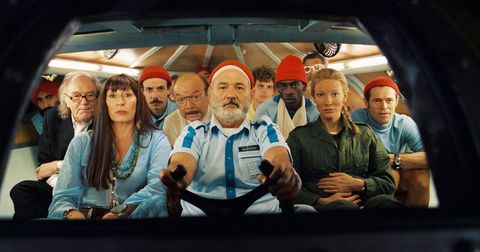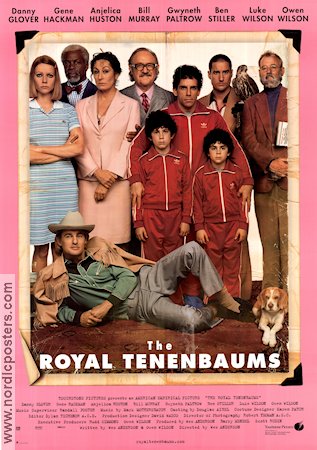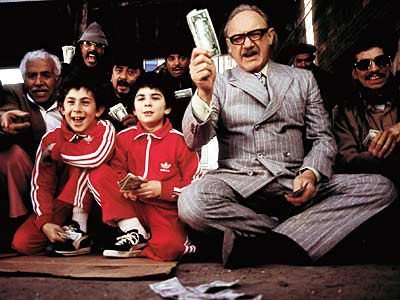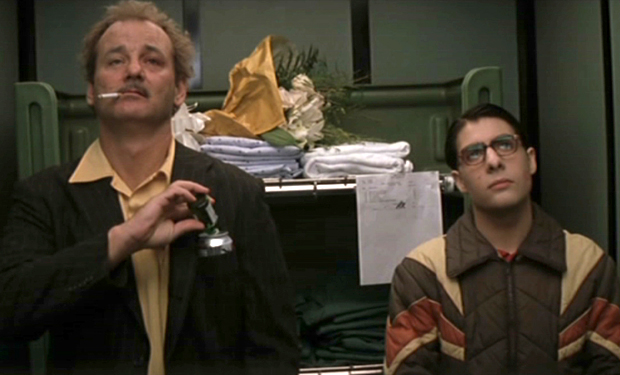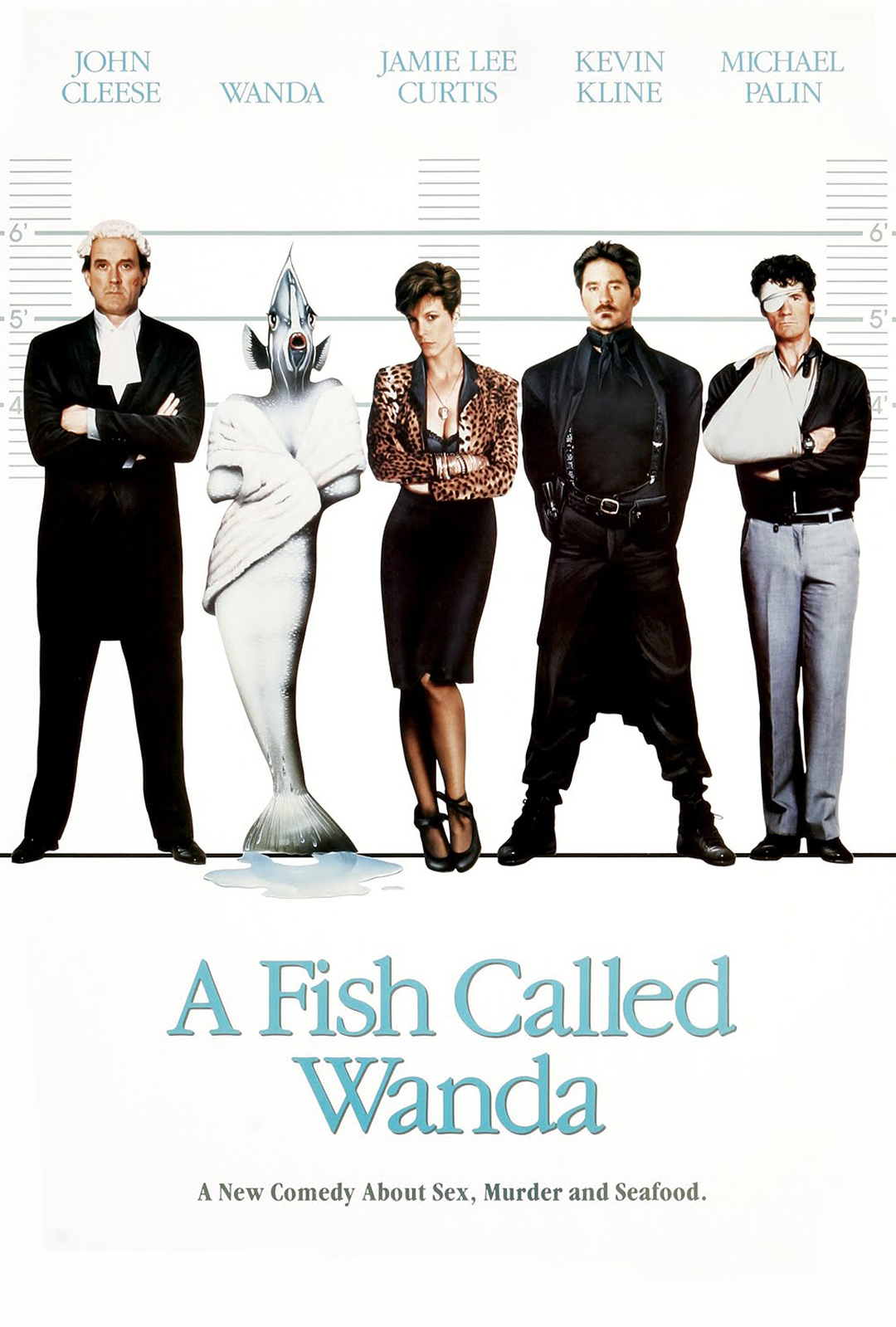Director: Wes Anderson
A fun Wes Anderson flick, though one that still feels more bloated than his others.
As part of our little, incomplete return to the films of Wes Anderson, my wife and I decided to give The Life Aquatic our first watch in well over a decade. It follows the title character, Steve Zissou (Bill Murray), who has hit a fairly nasty late-in-life rut. Zissou is a Jacque Cousteau-like marine biologist/adventurer who was once highly renowned and respected. In recent years, though, his star has fallen in the eyes of the public. His vices and arrogance have caught up with him, and nearly every personal bridge has been burned, leaving Steve in a haze of self-pity and existential crisis. A sense of purpose is sparked, however, when Steve's longtime partner is killed by what he claims is an exotic, previously-unknown species of shark. This sets Steve on an Ahab-like quest to find and kill the beast. Joining him and his normal crew is newcomer Ned Plimpton (Owen Wilson), a straightforward, earnest, Midwestern pilot who believes Steve to be his illegitimate father.
The Life Aquatic was fun to watch again, though the weaknesses that I observed when it came out are mostly still evident. There are plenty of hilarious moments, often little gags in the dialog or facial expressions, as one would expect from a movie featuring Bill Murray and other great actors like Cate Blanchett, Jeff Goldblum, Willem Dafoe, and Angelica Huston, among others. Having Murray play a weary, arrogant, dry narcissist on the high seas was bound to be funny, one way or another, and it is. Casting the greater tale within the notion of being a funny, quirky take on Moby Dick with a dysfunctional ship crew sets up a good deal of humor, too.
So what isn't it quite as memorable or funny as Anderson's other films? My feeling is that it simply tried to introduce a few too many character clashes and dynamics. There's the mystery of Steve's relationship with Ned. And Steve trying to maintain or repair his relationship with his wife. And Steve trying to impress and seduce a journalist who has joined his voyage. And Steve's rivalry with fellow celebrity marine biologist Alistair Hennessey. Then Steve has an entire side foray to save an "insurance bond stooge." And there's even a few other personal dramas thrown in here and there with members of his ship crew. It all just adds up to too much, resulting in a movie that feels too long, despite the film being a little under two hours. There were at least two moments in the third act that felt like good places to wrap up the movie, but it somehow kept going, resulting in a film that probably could have been a good 15 minutes shorter.
A curious observation I made on this viewing was how this movie hinted at Anderson's interest in using stop-motion animation, which he playfully sprinkled into The Life Aquatic, usually in the underwater sequences. It's an early tease of his control of the form, which he would bring fully to bear in his later full-length animated films The Fantastic Mr. Fox and Isle of Dogs.
The Life Aquatic is still a funny movie, and my wife and I did enjoy it. But I still consider it Anderson's weakest movie, mostly because it was overstuffed with too great a variety of interpersonal tensions. This is an error in judgment that Anderson seemed to correct with his next film, the shorter, more focused The Darjeeling Limited, and all subsequent live-action films, none of which has been more than 99 minutes long. Still, it says something when the worst of a director's seven full-length, live-action films is still a pretty good one.
A fun Wes Anderson flick, though one that still feels more bloated than his others.
As part of our little, incomplete return to the films of Wes Anderson, my wife and I decided to give The Life Aquatic our first watch in well over a decade. It follows the title character, Steve Zissou (Bill Murray), who has hit a fairly nasty late-in-life rut. Zissou is a Jacque Cousteau-like marine biologist/adventurer who was once highly renowned and respected. In recent years, though, his star has fallen in the eyes of the public. His vices and arrogance have caught up with him, and nearly every personal bridge has been burned, leaving Steve in a haze of self-pity and existential crisis. A sense of purpose is sparked, however, when Steve's longtime partner is killed by what he claims is an exotic, previously-unknown species of shark. This sets Steve on an Ahab-like quest to find and kill the beast. Joining him and his normal crew is newcomer Ned Plimpton (Owen Wilson), a straightforward, earnest, Midwestern pilot who believes Steve to be his illegitimate father.
The Life Aquatic was fun to watch again, though the weaknesses that I observed when it came out are mostly still evident. There are plenty of hilarious moments, often little gags in the dialog or facial expressions, as one would expect from a movie featuring Bill Murray and other great actors like Cate Blanchett, Jeff Goldblum, Willem Dafoe, and Angelica Huston, among others. Having Murray play a weary, arrogant, dry narcissist on the high seas was bound to be funny, one way or another, and it is. Casting the greater tale within the notion of being a funny, quirky take on Moby Dick with a dysfunctional ship crew sets up a good deal of humor, too.
So what isn't it quite as memorable or funny as Anderson's other films? My feeling is that it simply tried to introduce a few too many character clashes and dynamics. There's the mystery of Steve's relationship with Ned. And Steve trying to maintain or repair his relationship with his wife. And Steve trying to impress and seduce a journalist who has joined his voyage. And Steve's rivalry with fellow celebrity marine biologist Alistair Hennessey. Then Steve has an entire side foray to save an "insurance bond stooge." And there's even a few other personal dramas thrown in here and there with members of his ship crew. It all just adds up to too much, resulting in a movie that feels too long, despite the film being a little under two hours. There were at least two moments in the third act that felt like good places to wrap up the movie, but it somehow kept going, resulting in a film that probably could have been a good 15 minutes shorter.
A curious observation I made on this viewing was how this movie hinted at Anderson's interest in using stop-motion animation, which he playfully sprinkled into The Life Aquatic, usually in the underwater sequences. It's an early tease of his control of the form, which he would bring fully to bear in his later full-length animated films The Fantastic Mr. Fox and Isle of Dogs.
The Life Aquatic is still a funny movie, and my wife and I did enjoy it. But I still consider it Anderson's weakest movie, mostly because it was overstuffed with too great a variety of interpersonal tensions. This is an error in judgment that Anderson seemed to correct with his next film, the shorter, more focused The Darjeeling Limited, and all subsequent live-action films, none of which has been more than 99 minutes long. Still, it says something when the worst of a director's seven full-length, live-action films is still a pretty good one.

